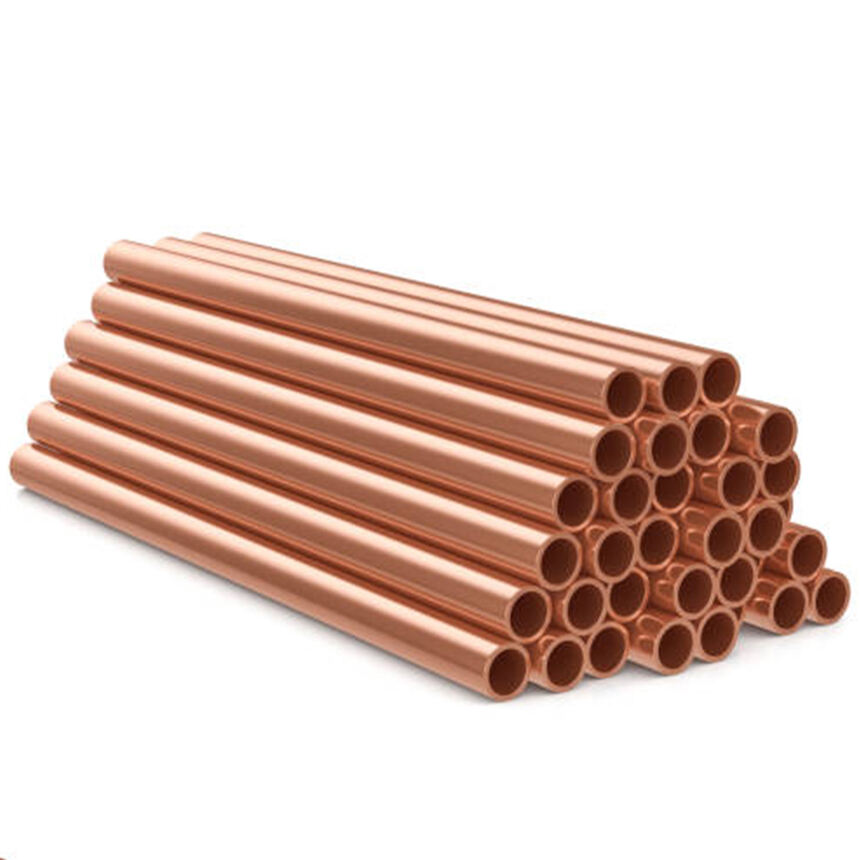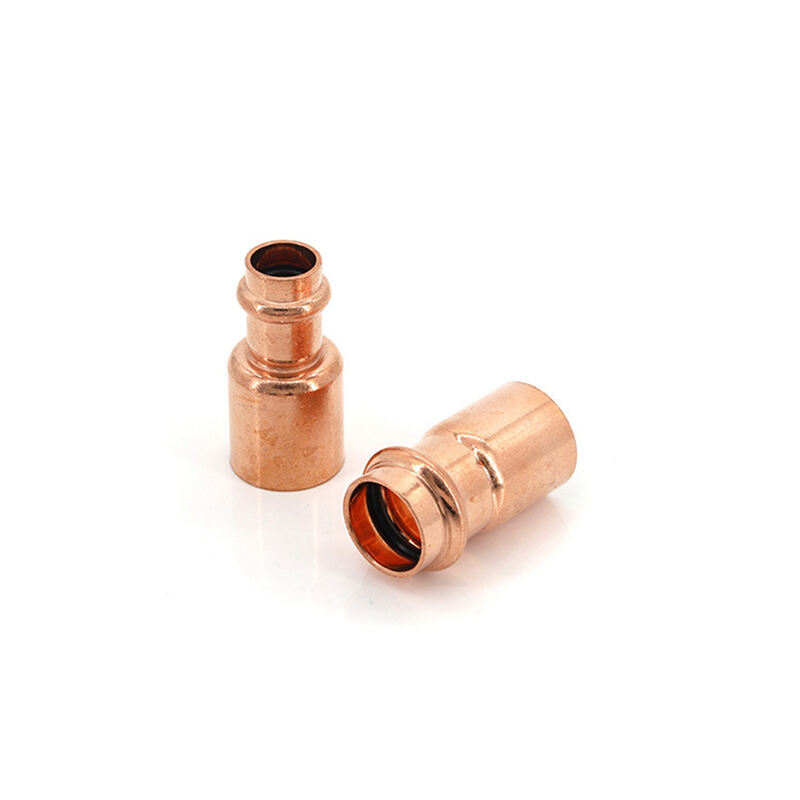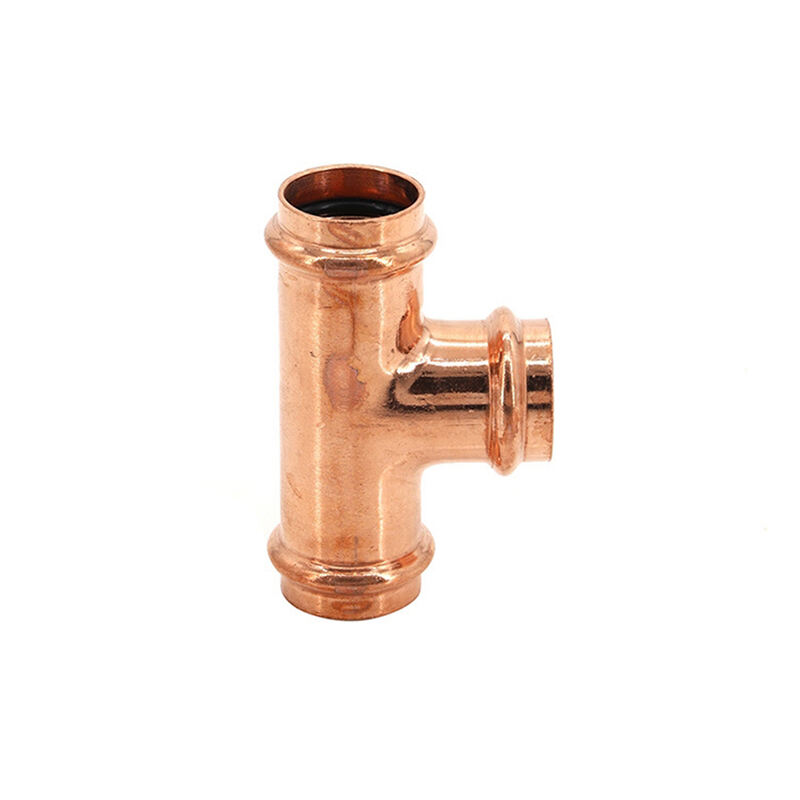Durability and Longevity in Industrial Applications
Withstanding Extreme Temperatures and Pressures
Copper pipes have become indispensable in industrial applications due to their unmatched durability. They can endure extreme temperatures ranging from -40°C to 200°C without losing their structural integrity, making them suitable for diverse environments. These pipes are also designed to withstand high pressures, which enhances their use in industrial settings where such conditions are frequent. Studies have shown that when copper pipes are installed correctly, their lifespan can exceed 50 years, a testament to their reliability and durability. This long lifespan not only ensures operational efficiency but also reduces the need for frequent replacements, offering significant cost savings over time.
Resistance to Wear and Environmental Stressors
Copper's natural properties provide it with excellent resistance to corrosion and rust, key traits that enhance its longevity in various environments. Unlike other materials, copper does not degrade when exposed to UV light or significant temperature fluctuations, making it reliable for outdoor or exposed installations. Field studies have demonstrated that copper pipes exhibit a low rate of wear even in abrasive environments, ensuring consistent performance. Such resilience against environmental stressors means that copper pipes remain a preferred choice in industries where reliability is paramount, particularly in settings exposed to varying atmospheric conditions. The durability of copper pipe connectors further complements this, enhancing the overall safety and efficiency of plumbing systems in demanding applications.
Corrosion Resistance for Long-Term Reliability
Performance in Harsh Chemical Environments
Copper pipes offer outstanding corrosion resistance even in harsh chemical environments, ensuring their long-term reliability in industrial applications. Unlike many alternative materials, copper maintains performance integrity, making it an ideal choice for settings exposed to corrosive agents. Research has demonstrated that copper exhibits a high resistance level to a range of corrosive chemicals, thereby minimizing the risk of degradation or failure. Various environmental agencies have endorsed the use of copper due to its proven durability and capability to withstand challenging conditions without compromising structural integrity.
- Copper pipes maintain performance integrity in environments with harsh chemicals, unlike many alternative materials.
- Research shows that copper has a high resistance level to a range of corrosive agents, ensuring reliability.
- The use of copper has been endorsed by various environmental agencies for its durability in challenging conditions.
Minimal Maintenance Requirements Over Time
Thanks to their robustness and corrosion resistance, copper pipes demand minimal maintenance over time, resulting in significant long-term reliability. Compared to plastic or steel alternatives, copper pipes require less frequent servicing, offering substantial cost savings on maintenance. Statistics reveal that annual service checks can be reduced by as much as 50%, providing operational efficiency without sacrificing performance. As long-term studies support, copper installations not only deliver reliable functionality but also reduce the overall costs associated with upkeep, making them an economically favorable choice for myriad applications.
- Due to its corrosion resistance, copper pipes require less frequent maintenance compared to plastic or steel alternatives.
- Statistics reveal that annual service checks on copper pipes can reduce by 50% due to their robustness.
- Long-term studies support that copper installations yield significant cost savings on maintenance over time.
In conclusion, copper pipes provide a reliable solution for industrial applications due to their exceptional corrosion resistance and low maintenance needs, delivering both performance and economic benefits.
Superior Thermal Conductivity for HVAC Systems
Efficient Heat Transfer in Industrial Processes
The exceptional thermal conductivity of copper results in more efficient heat exchange in HVAC systems, directly impacting operational costs. Research in the field of high-performance thermal studies repeatedly demonstrates that copper outperforms alternative materials like aluminum when it comes to heat transfer. These properties not only reduce energy consumption but also significantly enhance the system's longevity by minimizing wear due to thermal stress. By opting for copper pipes in industrial HVAC systems, businesses can achieve a sustainable reduction in energy costs while ensuring reliable system performance over time.
Compatibility with Brass Plumbing Fittings
Copper pipes seamlessly integrate with brass fittings, creating versatile solutions for plumbing systems. This compatibility reduces friction loss, thereby enhancing the overall efficiency of the piping system. Installers and engineers often emphasize the advantages of using brass fittings with copper pipes, citing the seamless connections that these materials provide. Such integrations not only ensure smooth water flow but also boost the lifespan and functionality of the system, offering a reliable choice for plumbing applications. Incorporating these materials into your design can lead to cost-effective and maintenance-friendly installations, making them a preferred choice in many sectors.
Sustainability and Recyclability of Copper Materials
Infinite Recyclability Without Quality Loss
Copper stands out in the field of sustainable building materials due to its infinite recyclability without degradation. This characteristic makes it a highly sustainable choice for various industries, ensuring that its benefits can be leveraged over and over again. According to industry reports, approximately 80% of all copper ever mined is still utilized today, a testament to its enduring utility and environmental value. This remarkable aspect positions copper as a leading material in sustainable construction and product design, outshining many other materials that lose quality upon recycling.
Reduced Environmental Impact vs. Plastic Pipes
When comparing copper pipes to their plastic counterparts, copper comes out ahead with a reduced environmental footprint. Unlike single-use plastic pipes, which often end up in landfills, copper pipes are completely recyclable, contributing to lower carbon emissions. Environmental studies have highlighted copper's longevity, which minimizes the necessity for frequent replacements, further promoting sustainable practices. Furthermore, lifecycle assessments reveal a significant reduction in waste generation with copper installations compared to those using plastic, reinforcing copper's status as an eco-friendly alternative in plumbing and other sectors.
Fire Safety and Health Advantages Over Alternatives
Non-Combustible Properties in Building Codes
Copper pipes are celebrated in the construction sector for their non-combustible nature, making them highly compatible with stringent fire safety regulations. Unlike many plastic alternatives, copper resists burning due to its high melting point of 1,085°C, which is crucial in preventing fires from spreading rapidly within buildings. Recent data supports the use of copper plumbing systems by showing fewer fire-related incidents in structures that utilize them compared to those that do not. Because of these characteristics, many modern construction codes now prioritize materials like copper, which don't contribute to fire hazards, further solidifying its reputation in safe building practices.
Eliminating Microplastic Contamination Risks
Copper pipes provide a distinct advantage in mitigating the risks associated with microplastic contamination, a growing concern with plastic pipes. Copper's natural antimicrobial properties significantly reduce bacterial growth, offering a cleaner and safer water supply. Studies examining water quality have demonstrated that copper pipes contribute to enhanced health safety standards due to their ability to minimize contaminants. In fact, health agencies globally recognize copper as superior to plastic in reducing harmful substances in water systems. This positions copper as a prime choice for those keen on promoting health and environmental sustainability.





